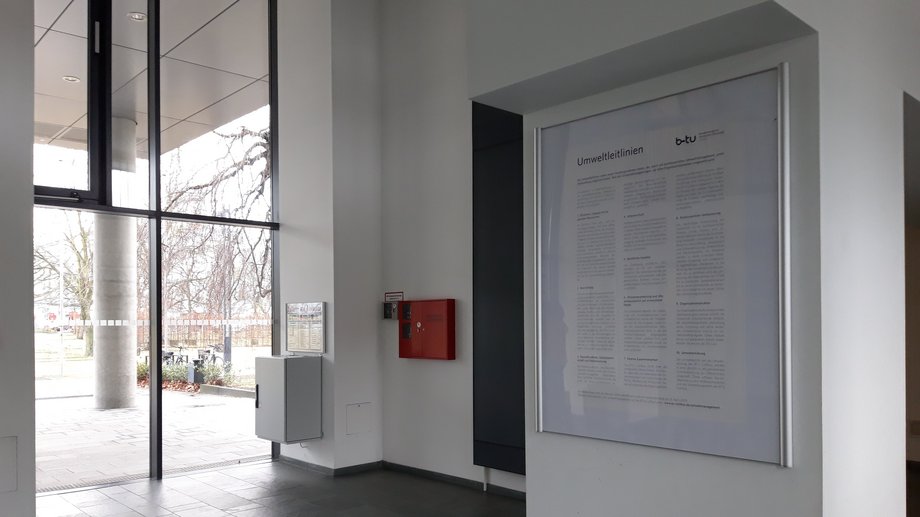The Environmental Guidelines of the BTU
The BTU's environmental guidelines are intended to provide a framework for action that is implemented through continuous environmental management involving the broadest possible segments of the university's membership at all organizational levels. The first version of the Environmental Guidelines was unanimously adopted by the Senate of the former BTU Cottbus on February 26, 2004 for the central campus and Bad Saarow locations and was last updated by the Senate of the BTU Cottbus-Senftenberg on July 14, 2016 for all locations.
Environmental Guidelines of the BTU (actually only in German)
The University Charter for Sustainable Development
In accordance with the resolution of the Senate, the COPERNICUS Charter was already signed by the acting President on 04.03.2002.
COPERNICUS-Charta (acually only in German)
EXPLANATIONS:
The COPERNICUS Charter of the European Rectors' Conference is based on AGENDA 21, defining the role of universities in the process of sustainable development and deriving from it 10 principles for action, such as knowledge and technology transfer, networking, continuing education, and the comprehensive integration of environmental ethical aspects in research and teaching. The charter is a voluntary commitment and has been signed by more than 300 universities from 37 European countries.
AGENDA 21 is a document that calls for sustainable development and declares it to be the guiding principle for the future. It was adopted in 1992 at the United Nations Conference on Environment and Development in Rio de Janeiro. 179 countries have committed themselves to this document, including Germany.
SUSTAINABLE DEVELOPMENT is "sustainable development that meets the needs of the present without compromising the ability of future generations to meet their own needs and choose their own lifestyles." (Bundtland Commission, 1987)

